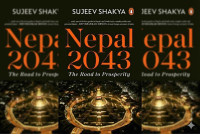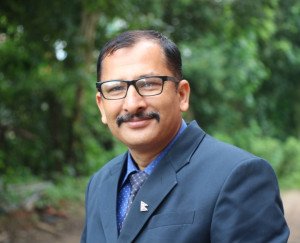Culture & Lifestyle
The spiritual dimension of wellness
Many experts the world over now advocate that aside from the physical, mental, and social, there exists a fourth dimension in health, and one that is just as important: the spiritual
Dr. Rabi Shakya
Of course, many ‘progressive’ authorities feel that even considering this is being unscientific and promoting superstition. But it’s an issue that has come increasingly in the limelight across the globe, and certainly worth considering in the case of developing countries like ours.
A modest analysis of 100 new consecutive patients coming into the BP Koirala Institute of Health Sciences’ psychiatry department, five years back, showed some striking results: 99 percent had visited faith healing services several times before resorting to modern treatment. It wasn’t simply owing to a lack of knowledge or resources; even the elite, affluent and urban were doing the same. In fact, even after they’ve been admitted to tertiary facilities, it is almost the rule that Nepalis of all socio-economic backgrounds, indulge in such interventions—before, simultaneously or after—for both mental and physical problems.
This behaviour can be explained in simple psychological terms. As humans, we have highly inquisitive brains that want answers to everything we see around us. And most human societies attribute evil or divine forces for the bad and the good that happens in our lives respectively. Humans are also social animals, and can’t stay aloof when another human, especially someone one is emotionally attached to, is suffering. We want to know the reason for the suffering, and ways in which to help. As per age-old tradition, the general
intervention, therefore, involves warding off evil spirits and pleasing the gods.
These faith-based socio-cultural practices are an integral part of human civilisation. The older the civilisation, the more abundant such beliefs and practices are. And regardless of the degree of modernisation, these phenomena are hard, almost impossible, to entirely wipe out. It’s difficult for humans to go against traditional interventions; so long as they can, they will try doing whatever possible with the resources they have. It’s true, after all, that a drowning man will clutch at a straw—a man in ill health will do everything he can to heal himself.
In any case, such age-old interventions are not necessarily always harmful either. As unscientific as it might sound, faith has tremendous power over human mind and behaviour—what we call the ‘placebo effect’ in modern medicine. We’ve all experienced a sense of instant relief from pain at the mere sight of a trusted doctor or his prescription, well before the medicine has started to kick in. When people do something to satisfy their faith, there is an immediate psychological advantage. In fact, many psychological disorders, like somatoform disorder or dissociative disorders, can be dramatically cured with such interventions alone.
However, many practices have also proven detrimental to the patient, scientifically. There are many dishonest traditional healers out there, after all, who are looking to exploit people for their personal benefits. In a society like ours, where majority of people are uneducated and naïve, promoters of certain faiths fool people by promising instant recovery from illness and further protections if they were to convert to that particular religion. They are found brainwashing patients against modern medicine, depriving them of treatment and eventually worsening the problem. It’s a common scenario: patients already under modern treatments discontinuing these after they and their families have converted to another religion, as per the suggestions of such faith healers, resulting in more complications to do with their health.
Is it not the responsibility of authorities to protect the naïve and vulnerable from such situations? Simply erecting health centres and providing free medication is not enough; we need to accept the fact that the ‘dhami-jhankri’ culture is here to stay. What we can do is work together for the overall benefit of patients. There have been experiments in developed nations that prove the benefits of incorporating simultaneous visits by spiritual leaders and doctors in hospitals. Modern medicine is often criticised in this country as being too cold and culturally inappropriate. Promoting the spiritual dimension, combining it with mainstream treatment, will increase acceptability and efficacy, and also help protect the vulnerable from those with vested interests.
To begin with, the government can start accrediting bonafide faith healers and monitoring their conduct. Health centres can then appoint their own authorised spiritual scholars to counsel patients. Their help could be instrumental in warding off certain misconceptions, and create a win-win situation for all. This could be a way to preserve and promote the more positive aspects of our culture while correcting those that are not so positive. Could this be the answer to the ongoing vandalisation of hospitals and general lawnessness in the sector too? We could try out some pilot studies and hone in on a model that best suits our society. It might be difficult to implement, but certainly not impossible.
Dr Shakya is the Associate Professor and Head of the Department of Psychiatry at the Patan Academy of Health Sciences




 9.12°C Kathmandu
9.12°C Kathmandu















